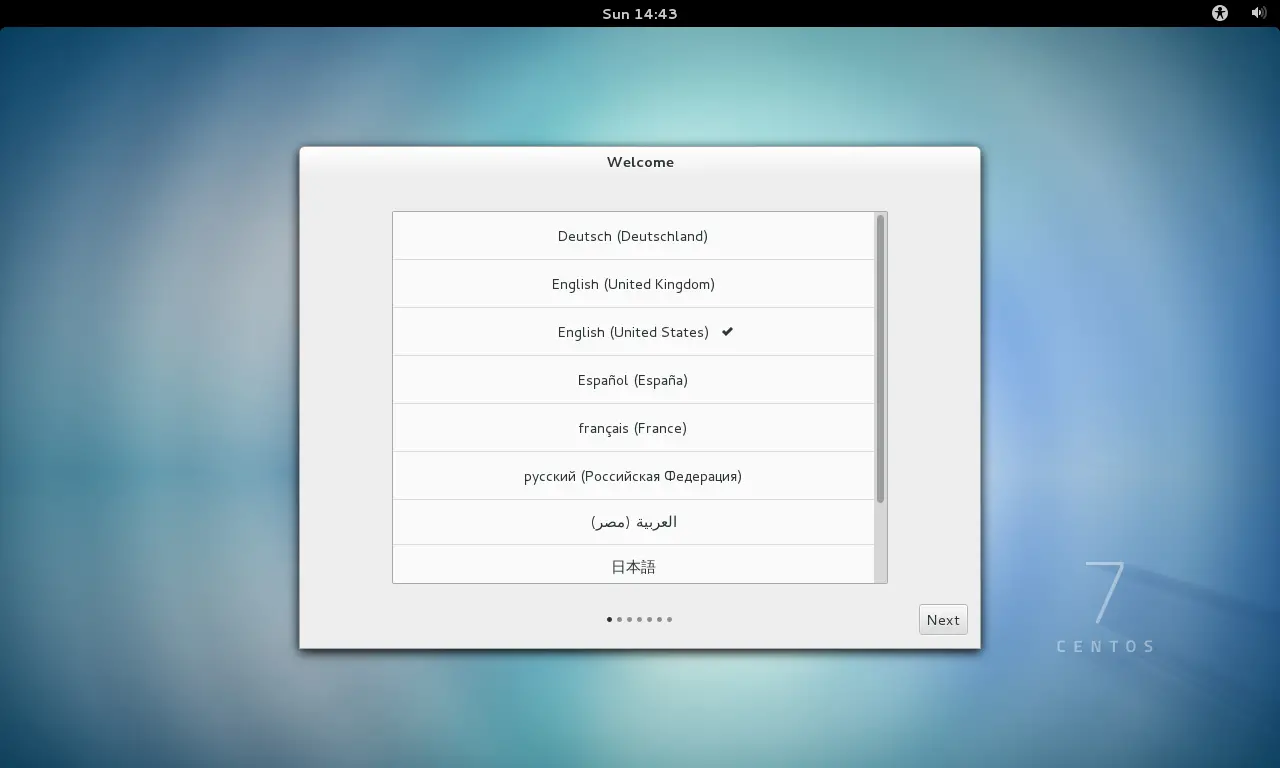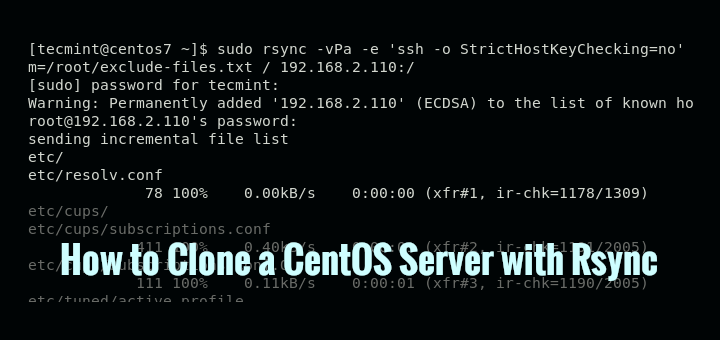

UNISON 2.48.3 finished propagating changes at 12:52:43.71 on Copying from /home/primuser/backup_data to //backup_server_ip//home/bkpuser/backup_data UNISON 2.48.3 started propagating changes at 12:52:43.70 on
Install Unison Centos 7 how to#
See the documentation for the UNISONLOCALHOSTNAMEĮnvironment variable for advice on how to correct this.ĭonations to the Unison project are gratefully accepted: Is getting its address from DHCP, which is causing its host name to changeīetween synchronizations. If you see this message repeatedly, it may be because one of your machines If the two replicas are identical, then no changes will be reported. Replica will be judged as new and propagated to the other replica. Will be reported as conflicts, and any files that exist only on one This means that any files that are different Unison will assume that the 'last synchronized state' of both replicas

Install Unison Centos 7 update#
Update detection may take a while on this run if the replicas are Or because you have upgraded Unison to a new version with a different backup_server_ip//home/bkpuser/backup_dataīecause this is the first time you have synchronized these roots,
Install Unison Centos 7 archive#
Warning: No archive files were found for these roots, whose canonical names are: This command will print a long message the first time that it is run. $ unison -batch -auto /home/ primuser/backup_data ssh:// backup_server_ip//home/ bkpuser/backup_data Now that you have the data directory and some test files to back up, you can run Unison to back up the files to the backup server.

Next, use the touch command to create three empty files: Sshargs = -i /home/primuser/.ssh/primuserĬreate a directory that will hold the data to back up by running the following command from the primuser home directory: Open the file with the following command: This file contains the Unison configuration. Open a new file with the name default.prf in a text editor in the. We need to create the configuration directory under the primauser's home directory on the primary server: If everything is working you will see a response showing the version of Unison on the backup server:

Next, check that Unison will connect by running the following command from the primuser home directory on the primary server: You just needed to confirm that SSH works between the servers and save the backup server's SSH fingerprint. ssh/primuser the fingerprint by pressing Y and then ENTER, and log in and out. You can now test that the SSH configuration is working by logging into the backup server from the primary server via SSH. Paste the public key into the editor, then save and exit. ssh/authorized_keys file with a text editor. On the backup server in the bkpuser home directory, open the. The easiest way to display the contents of the public key file for copying is to use the cat command to print the contents to the terminal: You need to copy the contents of the public key file to the backup server. ssh/primuser file contain the private SSH key and.


 0 kommentar(er)
0 kommentar(er)
